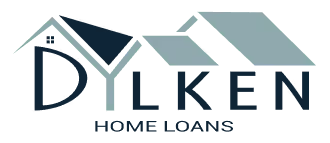Compare Today’s Mortgage Rates in Hays County
If you’re reviewing purchase or refinance loan options in San Marcos, Kyle, Buda, Wimberley, Dripping Springs or other cities, the first step is to explore today’s mortgage rates. With a broad range of lending programs, you can find terms and monthly payments that make homeownership more attainable.
Get a quoteThe mortgage rates, APRs, estimated monthly payments, and discount points listed are current as of today and may change at any time. These figures are based on a borrower with a FICO® score of 780 or higher, along with the down payment amounts required for each product. Calculations assume the loan is for a single-family primary residence and include up to one mortgage discount point applied to lower the interest rate. Speak with a mortgage loan officer to learn how points can reduce your costs.
Purchase Rates
Conventional Fixed-Rate Loans
Conventional fixed-rate mortgages provide predictable monthly payments with an interest rate that remains the same for the entire loan term, usually 15, 20, or 30 years. Borrowers generally need 3%–20% down. Mortgage insurance may apply if equity is less than 20%. Credit, appraisal, and closing funds influence eligibility.
Conforming Adjustable-Rate Mortgage (ARM) Loans
ARMs begin with lower interest rates than fixed loans, making initial monthly payments more affordable. Over time, the rate can increase or decrease depending on market conditions. ARMs are best suited for borrowers who expect to move or refinance before adjustments occur, or who can manage payment changes.
Federal Housing Administration (FHA) Loans
FHA loans, insured by the Federal Housing Administration, are designed for borrowers with smaller down payments and less-than-perfect credit. With just 3.5% down required, they open doors for many first-time buyers. Borrowers must pay upfront and annual mortgage insurance premiums, which help lenders reduce risk.
Veterans Affairs (VA) Loans
VA loans, backed by the U.S. Department of Veterans Affairs, are available to eligible veterans, service members, and surviving spouses. Benefits include no down payment, no mortgage insurance, and competitive interest rates. These loans provide flexible qualification standards and one of the most affordable financing options for military families.
Jumbo Loans
Jumbo mortgages are used for properties exceeding conforming loan limits. They allow financing of high-value homes but come with stricter underwriting standards. Larger down payments, excellent credit, and higher income are often required. Jumbo loans may carry slightly higher interest rates compared to standard conforming products.
Take your first step towards your home loan journey
Refinance Rates
Conventional Fixed-Rate Loans
Refinancing into a fixed-rate mortgage provides stable monthly payments and consistent rates over the loan’s term. Typically, homeowners need at least 20% equity to avoid private mortgage insurance. Creditworthiness, property appraisal, and closing costs affect loan approval and interest rates.
Conforming Adjustable-Rate Mortgage (ARM) Loans
ARM refinance loans begin with lower interest rates than fixed products. Payments may increase later as the rate adjusts, making them beneficial for borrowers who plan to sell or refinance again before the adjustment period. While riskier, ARMs can reduce costs in the early years.
Federal Housing Administration (FHA) Loans
FHA refinancing is ideal for borrowers with limited equity or modest credit. With government backing, these loans allow refinancing at competitive rates, though they require mortgage insurance premiums. FHA programs help homeowners improve affordability even when conventional refinancing options may be harder to secure.
Veterans Affairs (VA) Loans
VA refinance programs, including streamlined options, allow qualified military borrowers to lower payments, change loan terms, or switch to fixed rates. VA loans do not require mortgage insurance and often offer lower rates, making them one of the most affordable refinancing choices available.
Jumbo Loans
Jumbo refinance mortgages are designed for high-value homes that exceed conforming loan limits. Borrowers must demonstrate strong credit profiles, significant equity, and the ability to cover larger payments. These loans may involve stricter requirements and slightly higher rates compared to standard refinance products.
Frequently asked questions about mortgage rates
1. How do Missouri mortgage rates compare to national averages?
.png)
.png)
Missouri mortgage rates often trend close to the national average but may vary by lender and local housing demand. Market conditions, credit strength, and loan type also influence the rate you receive. Comparing lenders across Missouri ensures you secure the most competitive terms available.
2. What impacts my mortgage rate the most?
.png)
.png)
Key factors include your credit score, loan type, down payment or equity amount, debt-to-income ratio, and overall financial profile. Broader influences such as inflation, Federal Reserve policy, and investor demand for mortgage-backed securities also play major roles in determining current mortgage rates.
3. Are adjustable-rate mortgages popular in Missouri?
.png)
.png)
Adjustable-rate mortgages can appeal to borrowers in Missouri who expect to sell or refinance within a few years. ARMs start with lower payments than fixed loans, but rates may adjust upward. They’re best suited for short-term homeowners or those willing to accept potential payment changes.
4. When should I consider refinancing my home in Missouri?
.png)
.png)
Refinancing makes sense if current mortgage rates are lower than your existing rate or if you want to shorten the loan term. Homeowners also refinance to switch from adjustable to fixed loans, access home equity, or consolidate debt. Calculating closing costs versus savings is essential.
5. Why are jumbo loan rates different from conventional loans?
.png)
.png)
Jumbo loans exceed conforming limits and are not backed by government entities like Fannie Mae or Freddie Mac. Because of this added lender risk, jumbo loans typically require stricter qualifications and may come with slightly higher rates, although strong borrowers can still access competitive options.

.svg)

.svg)
